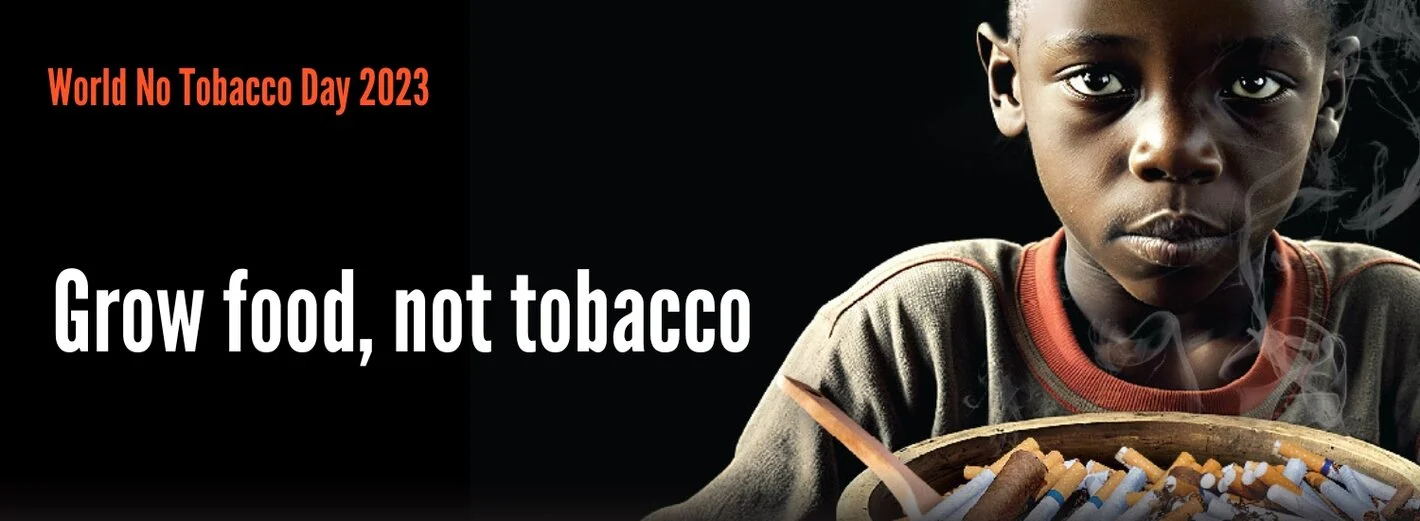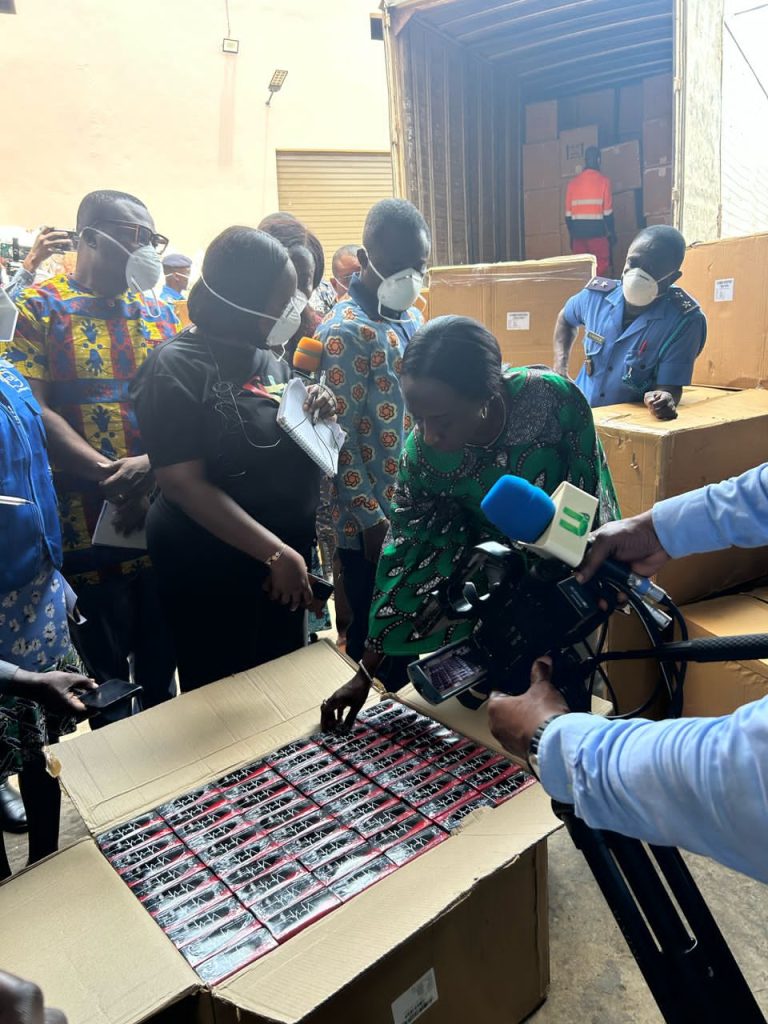Welcome to World No Tobacco Day on 31st May, a day dedicated to raising awareness about the harmful effects of tobacco use on our health and well-being. This year's theme, "We need food, not tobacco," highlights the critical role that nutrition plays in our lives and how tobacco use can have a detrimental impact on our ability to lead healthy, fulfilling lives. As we reflect on this theme, let us take a moment to consider the millions of lives that have been lost or affected by tobacco use and commit to promoting healthier choices that prioritize nourishment and well-being.
Tobacco is a leading cause of preventable death worldwide. It causes a range of serious illnesses, including lung cancer, heart disease, stroke, and respiratory diseases. According to the Tobacco Atlas, more than 6,700 Ghanaians die every year due to tobacco-related illnesses of which sixty-six percent (66%) of these deaths are individuals under age 70. Also, about 18% of Ghanaian lives are lost from exposure to second-hand smoke.
Despite this, the tobacco industry continues to thrive, promoting its products in every way possible. Meanwhile, millions of people around the world go hungry every day. The question arises: why are we prioritizing the production and sale of tobacco when people need food?
There are several reasons why we need to prioritize food over tobacco. Primarily, food is a basic human need. It is essential for survival, growth, and development. Without adequate nutrition, people are more likely to suffer from illness, reduced productivity, and impaired cognitive function. In contrast, tobacco serves no nutritional purpose and only harms those who use it.
Second, the tobacco industry is a resource-intensive venture that depletes important land, water, and other resources in order to grow the tobacco plant. Tobacco growing, according to the World Health Organization (WHO), takes substantial amounts of water, fertilizer, and pesticides to cultivate the crops, when these resources may be better used to grow food crops that could feed people instead of harming them.
Third, the tobacco industry is a major contributor to global inequality. Most tobacco users are concentrated in low- and middle-income countries, where people often lack access to basic healthcare and nutrition. Meanwhile, the tobacco industry profits from these same countries, exploiting their resources and labor. The United Nations Sustainable Development Goal 2 of ending hunger could be more effectively attained if land that is currently used to cultivate tobacco were utilized for food production instead. By prioritizing food over tobacco, we can work towards greater equity and social justice.
“It means recognizing that our bodies need proper nourishment to function optimally, and that tobacco use can have serious long-term consequences for our health.”
Lastly, we need to prioritize food over tobacco because it is the right thing to do. Prioritizing food over tobacco means making a conscious decision to choose healthy food options and prioritize the intake of essential nutrients over harmful tobacco use. It means recognizing that our bodies need proper nourishment to function optimally, and that tobacco use can have serious long-term consequences for our health. Prioritizing food over tobacco means prioritizing our health and well-being by making informed choices that support our physical and mental health. No one should have to choose between feeding themselves and their families and risking their health by using tobacco. By recognizing the importance of food as a basic human need, we can work towards a more just and equitable society.
The 2023 WNTD campaign calls on governments and policymakers to step up legislation, develop suitable policies and strategies, and enable market conditions for tobacco farmers to shift to growing food crops that would provide them and their families with a better life.
In collaboration with partners, the global campaign will increase tobacco farmers’ awareness of marketing and alternative crop production prospects as well as inspire them to plant nutrient-dense, sustainable crops.
“As World No Tobacco Day draws close, let us take a moment to reflect on this year’s theme: “We need food, not tobacco.” It serves as a poignant reminder of the devastating impact tobacco use can have on our health and well-being, emphasizing the critical importance of prioritizing access to nutritious food.”
As World No Tobacco Day draws close, let us take a moment to reflect on this year’s theme: “We need food, not tobacco.” It serves as a poignant reminder of the devastating impact tobacco use can have on our health and well-being, emphasizing the critical importance of prioritizing access to nutritious food. Moving forward, let us continue to raise awareness about the dangers of tobacco use and advocate for policies and initiatives that prioritize access to healthy and affordable food. Together, we can create a healthier, happier world for ourselves and future generations.



